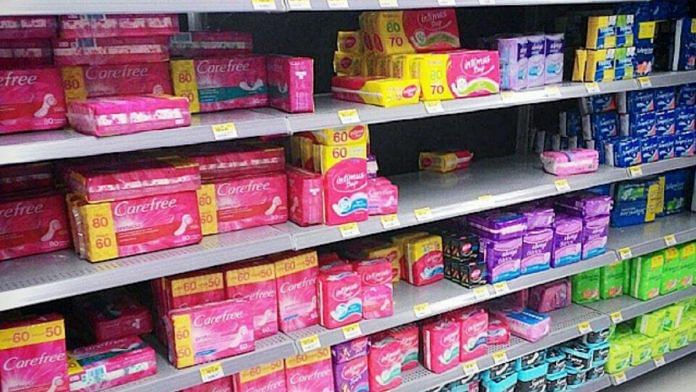In India, where nearly half the population comprises women and girls, the topic of menstrual health management, or MHM, continues to be under-prioritised. While conversations around menstrual hygiene and ‘period leaves’ are gaining traction in the urban workforce, within the realm of India’s informal labour sector, where over 90 per cent of lives intersect to drive the nation’s progress, an often-overlooked reality persists. A staggering number of women who form the bulk of this informal and unorganised workforce continue to face an uphill battle in accessing necessities, including clean toilets, adequate menstrual hygiene products, and awareness of their importance.
WaterAid India’s survey of female waste pickers in 13 communities revealed concerning statistics: 17.6 per cent had no access to sanitation facilities, 37.3 per cent missed work during their periods, 63.7 per cent did not change menstrual absorbents while working, and over 60 per cent had distant toilets from their workplace. MHM is a catalyst for social and economic progress, yet it is often marginalised in policy discussions. Ensuring women’s health, empowerment, and equal participation in the workforce requires addressing cultural taboos around menstruation and providing clean toilets with essential amenities. Unfortunately, access to such facilities remains a luxury for these women, impacting their health, safety, and overall progress.
MHM schemes sideline informal sector workers
Some reports suggest that there are over 355 million menstruating women and girls in India. Among them, almost one-fourth of women between the age of 15-24 [National Family Health Survey (NFHS-5) 2019-21] are not using hygienic protection methods, such as locally prepared sanitary napkins, tampons, cloth, and menstrual cups. Even among those who do use safe sanitary products, a majority (around 90 per cent) belong to urban areas. This is a noteworthy jump from NFHS-4 in 2015-16, where almost half the percentage of the same age group of women were not using safe protection during their menstrual period. This could be attributed to the schemes implemented by the Indian government and select state governments to address menstrual hygiene management, improve women’s health through better sanitation, and increase access to public toilets.
Unfortunately, programmes such as the Menstrual Hygiene Scheme, Rashtriya Kishor Swasthya Karyakram, and MHM programmes in states such as Rajasthan, Uttar Pradesh, Odisha, Maharashtra, Chhattisgarh, Andhra Pradesh, and Kerala have primarily targeted school-going children, disregarding the needs of women in the informal workforce.
These women lack awareness and understanding of menstrual hygiene, face challenges accessing sanitary products and toilets, and experience economic strain due to missed work during menstruation. Despite India’s progress in prioritising labour rights, this segment of our population largely remains outside the purview of labour laws and rights, except the Minimum Wages Act in some states. This omission is especially striking as employers within the informal sector are not legally obligated to provide women with a suitable workplace environment that caters to adequate sanitation-related needs, such as safe, clean, accessible toilets with running water and/or ones equipped with sanitary products to help during their menstruating days.
While the government’s achievement of constructing 11 crore individual household toilets and 2.23 lakh community sanitary complexes under the Swachh Bharat Mission (Grameen) is commendable, the pressing challenge lies in ensuring their effective utilisation, improving overall sanitation conditions and access to women, especially the ones working in the informal sector. The underlying problem lies in the lack of recognition of MHM as an intersectional issue that spans multiple policy domains and departments. To comprehensively address the various aspects of MHM, including health, hygiene, sanitation, gender, education, labour, and human rights, policymakers in India must acknowledge its importance. This calls for fostering dialogue and collaboration among stakeholders and establishing an inter-ministerial working group dedicated to MHM. Such a group should focus on creating supportive policies for women in the informal sector and ensure effective implementation and translation of these schemes into tangible actions on the ground.
Also Read: India’s workplaces need to understand menstruation better. Period
Collaboration is key
Strengthening the integration of health and sanitation departments with initiatives like India’s smart cities project, which aims to provide improved urban infrastructure, is essential to prioritise the inclusion of clean and accessible toilets equipped with free or subsidised menstrual hygiene products. These departments should further strengthen collaboration with the labour department to prioritise the needs of the informal labour force and look at MHM through the additional lens of labour laws.
Education and community-driven initiatives in rural areas or urban slums where a large section of the women informal workers live should continue to be at the forefront of MHM efforts, encouraging awareness and dismantling the taboos surrounding menstruation that remain the overarching challenge from a social and cultural narrative around MHM. Moreover, the active engagement of the private sector becomes pivotal, providing the necessary social and economic resources to support comprehensive MHM initiatives through innovative approaches and corporate social responsibility initiatives. Private sector support to the government is crucial to address adequate availability and facilities around MHM at all levels of the informal workforce.
Amid the pressing urgency and promising opportunities that define India’s current landscape, it is imperative to swiftly prioritise and take action to dismantle the barriers hindering women’s access to adequate menstrual care within the informal economy. This pivotal step is fundamental for unleashing their untapped potential and empowering them to actively participate in the nation’s building process while safeguarding their health and well-being.
Suryaprabha Sadasivan is vice-president, and Jija Dutt a manager at Chase India, a public policy and advocacy advisory firm. They tweet @SuryaSadasivan and @JijaDutt. Views are personal.
(Edited by Zoya Bhatti)



